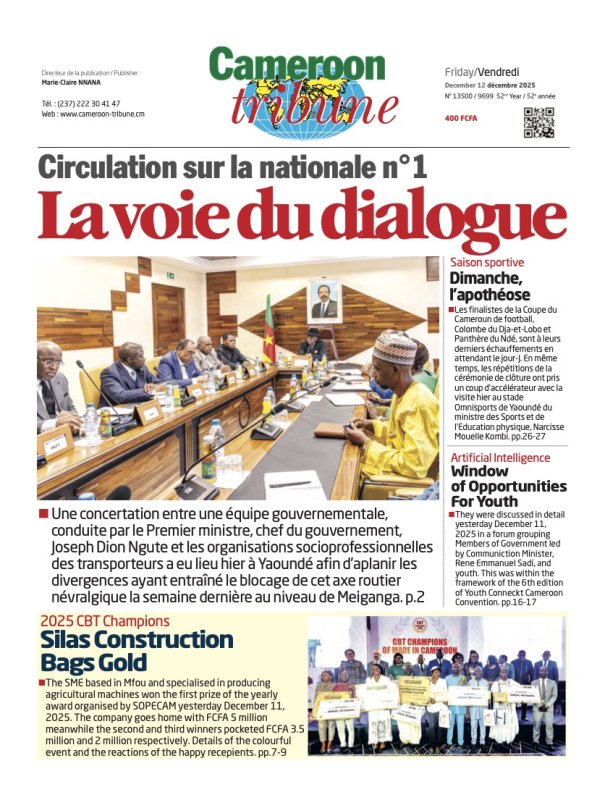New Dawn In Decentralisation !
- Par Godlove BAINKONG
- 03 Jan 2020 11:25
- 0 Likes
When President Paul Biya on December 31, 2019 told his fellow compatriots that “A new Cameroon is taking shape,” referring among others to the newest law; the General Code of Regional and Local Authorities, keen observers of the political and administrative setup of the country no doubt saw change coming on the long-drawn decentralisation process.
As a matter of fact, the country’s chief executive officer made reference to the bill to institute the General Code of Regional and Local Authorities which government tabled before the country’s two Houses of Parliament, notably; the National Assembly and the Senate, for consideration in an extraordinary session. The Head of State promulgated the bill into law on December 24, 2019 signalling a new dawn in the country’s decentralisation process.
And indeed the fresh law has a lot in store for the process which has suffered several challenges ranging on one hand; from reticence on the part of vote holders in surrendering some of their sovereignties to the local councils to near inadequate quality and quantity human resources of recipient councils to handle certain tasks, on the other. But now, the path seems clearer for the rather irreversible process with the stage fully to produce desired results.
The President of the Republic holds that the law heralds decisive breakthroughs in our decentralization process, notably regarding the status of locally-elected officials, the running of local assemblies and the allocation of additional, substantial financial resources to regions.
To say the least, the code overhauls what has been happening in the country with regards to decentralisation and above all gives rights and responsibilities to elected rural authorities. With Communal Development Plans now dusted off the cupboards, the institution of Council Boards and significant openings for financial flows, it would be illogical to wholly accuse Yaounde again for the underdevelopment of a council in any locality across the 360 sub-divisions of the country. With the composition of the councils wherein councillors come from all the villages and other socio-cultural backgrounds, there is every reason to think that what would be done at the local level would come from the population and would meet their aspirations. Hope is that schools, for instance, would no longer be given where hospitals are needed or projects inscribed in the project’s logbook when the beneficial populations are not aware. They who have sometimes posed as obstacles to project execution, especially when it concerns forfeiting their lands. A participatory approach is the hallmark of the innovative law.
In fact, the Council Boards with their deliberative roles have the powers to regulate the affairs of the council through deliberations, express an opinion whenever required by the ...
Cet article complet est réservé aux abonnés
Déjà abonné ? Identifiez-vous >
Accédez en illimité à Cameroon Tribune Digital à partir de 26250 FCFA
Je M'abonne1 minute suffit pour vous abonner à Cameroon Tribune Digital !
- Votre numéro spécial cameroon-tribune en version numérique
- Des encarts
- Des appels d'offres exclusives
- D'avant-première (accès 24h avant la publication)
- Des éditions consultables sur tous supports (smartphone, tablettes, PC)











Commentaires